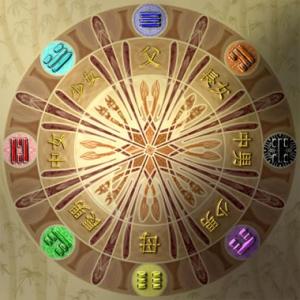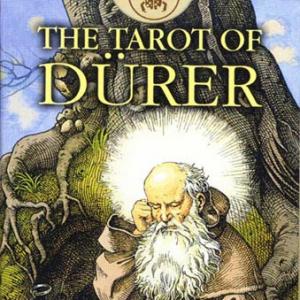Ponomarev Nikolai Borisovich Politburo. Ponomarev. Life of Remarkable People. Soviet party leader, candidate member of the Politburo of the CPSU Central Committee
Born into the family of an employee. He graduated from Moscow State University in 1926, and also from the Institute of Red Professorship in 1932. Academician of the USSR Academy of Sciences (1962), Hero of Socialist Labor (1975).
In 1919 he joined the RCP (b) and the Red Army. Participant Civil War. In 1920-23 - at Komsomol and party work in Zaraysk, and then in Donbass. In 1932-34. Deputy works Director of the Historical-Party Institute of the Red Professorship, in 1934-37. - Director of the Institute of Party History at the Moscow Committee of the All-Union Communist Party (Bolsheviks). In 1936-43. - Political referent of the Executive Committee of the Comintern. On the eve and during the war, he participated in the development of policy issues and tactics of the Communist parties in the fight against fascism, and actively contributed to the development of the Resistance Movement. In 1943-44. – deputy Director of the Marx-Engels-Lenin Institute, party journalist. In 1944-46. – deputy head Department of International Information of the Central Committee of the All-Union Communist Party of Bolsheviks. In 1946-49. – 1st deputy Chief and Chief of the Sovinformburo. In 1948-55. – 1st deputy Chairman of the Foreign Policy Commission of the Central Committee (department for relations with foreign communist parties). Since 1952 - candidate member, since 1956 - member of the CPSU Central Committee. Supervised contacts with foreign communist parties. After Stalin's death, he was promoted to leadership positions in the Central Committee apparatus: from 1955 - head. Department for Relations with Foreign Communist Parties and at the same time, since October 1961, Secretary of the CPSU Central Committee. Since 1958 – Deputy of the USSR Supreme Council. Since 1972 - candidate member of the Politburo of the CPSU Central Committee. Since 1974 - Chairman of the Foreign Affairs Commission of the Council of Nationalities of the USSR Armed Forces. In 1986 he retired.
Laureate of the Lenin Prize, awarded many orders and medals. He is the author and editor of many works on the history of the CPSU, on the history of the international communist and labor movement, etc.
He lived in apartment No. 206 in the house since 1956.
From the book by K.N. Brutents “30 years on Old Square”, 1998:
Of course, under the existing system, everything in the International Department was determined mainly by B.N. Ponomarev, the permanent head of the department for more than 30 years. Having joined the All-Union Communist Party (Bolsheviks) as a young man, he moved in a working environment, then graduated from the Institute of Red Professors. He survived the years of Stalin’s terror as a mature, 40-year-old man who hung around in the circle of “old Bolsheviks.” He was the head of the Sovinformburo, an assistant at the Comintern to Dimitrov (who, judging by his diary entries, did not particularly favor Ponomarev), worked his way up in the Central Committee apparatus from the bottom to the top - to the secretary of the Central Committee, and a little later to a candidate member of the Politburo. He, of course, saw everything. They said, for example, that in his office Rakosi was typing a document - a request for the entry of Soviet troops into Budapest.
This life path, as it seems to me, determined a lot in the personality of Boris Nikolaevich, his views and inclinations, his likes and dislikes. He was 100 percent a party man in the sense that the concept of “party,” party decisions and instructions, as well as certain forms of behavior, were sacred to him. At the same time, in practice this degenerated into almost automatic obedience to directives from above, unconditional agreement with the opinion of the authorities and non-resistance to it in any case. It seems to me that this excessive lack of independence in decisive moments, the absence of some kind of metal “core” in him, was felt by his colleagues and served as one of the factors that prevented him from achieving his cherished goal - to become a member of the Politburo. The leadership (Brezhnev, Kirilenko, Andropov) did not like Ponomarev, but they tolerated him, taking into account his professionalism of a certain kind.
Boris Nikolayevich’s patron was Suslov, who, however, kept him in the wings and in strictness: he needed, relatively speaking, a “workhorse”, but not a competitor. Ponomarev himself, apparently, felt this position and did not feel very confident. Every time Suslov called, Boris Nikolaevich spoke to him respectfully, not without emotion.
Ponomarev was an intelligent, knowledgeable, well-prepared person, with a very strong memory, which remained clear until his last days. But a narrow, often rigidly dogmatic view of things prevailed in him, and at times it was thought that this was, at least in part, his conscious choice, a voluntary self-restraint, so to speak. In his interpretation of events, he was characterized by what I called a police approach to history. “His people”, intelligence efforts - that’s what primarily attracted his attention, although as a Marxist Boris Nikolaevich should have believed that, despite all the importance of these factors, they do not determine the course of social development.
In his many public appearances, he never risked going beyond what had already been said and approved, drying up and discoloring the texts that were prepared for him. They were given originality by a technique that we called “nonomarization”: the grouping of several theses, each of which began with a paragraph opening with a dash. These “tireshki” each time constituted, according to the ironic definition of A. Chernyaev, who worked a lot in this field, “Ponomarev’s teaching.” This was obviously dictated by the fact that from Stalin’s times Boris Nikolaevich retained faith in the miraculous power of the party’s leading word. No wonder his first reaction to any major event was often: “We need to write an article.” He was a man of boring vocabulary, but at the same time he was capable of suddenly delivering a bright speech.
In relations with foreign communist parties, Ponomarev adhered to Comintern traditions. The main one was the position of the CPSU as an infallible guiding force, in fact, as a father party. And when some parties (Italian, Spanish, Finnish, etc.) challenged this situation, it was completely natural for him to support the formation of opposition groups within them. In conversations, he invariably asked whether Moscow Radio was heard in a particular country, and recommended visiting it and speaking. Each time he advised me to work more actively in trade unions and the army. And he suggested that the ruling parties “draw from the cup of experience” of the CPSU and the USSR. Ponomarev's foreign colleagues, partly in accordance with the manner he himself set, treated him with restraint, without warmth. And people like Berlinguer, without the slightest reverence, to say the least*.
*I was convinced of this myself, having attended their conversations twice, the last time in 1980 during the funeral of Luigi Longo.
To the credit of Boris Nikolayevich, he was a convinced anti-Stalinist, adhered to this line without hesitation, and stood up for people with a similar reputation. And internationalism for him was not just a slogan, but a chosen position.
Work occupied a central, if not all-encompassing, place in his life. It is characteristic that even after his retirement he came to the Central Committee every day, where Ponomarev, at his request, was given a room in the International Department.
Tempered by the storms of life, he usually maintained his presence of mind in difficult situations and was not prone to violent reactions, at least outwardly. The most typical expression of his surprise or indignation was the phrase: “It boggles the mind.”
I remember that in the spring of 1965, in Volynsky-1 (former Stalin’s dacha), under the leadership of Ponomarev, we were preparing a report on the international situation and activities of the CPSU, which Brezhnev was supposed to speak at the plenum - the first dedicated to these issues after his election as First Secretary of the Central Committee. For Boris Nikolaevich this work was of fundamental importance. Like Ilyichev, another of Khrushchev’s nominees, he was in a “limbo” state. The draft report was handed to Leonid Ilyich on the eve of his departure, together with Andropov, to Budapest. And from there, Yuri Vladimirovich informed by telephone that Brezhnev did not like the draft (with the exception of the section on the national liberation movement) and he asked whether it would be better to cancel the plenum altogether. We were all at a loss, but not Boris Nikolaevich. He gathered us and said that nothing extraordinary had happened, we just had to write a new version in a day or two. Which is what was done.
Another time, in 1972, in Budapest, our group of Hungarians was invited to a restaurant in the so-called “Fisherman's Bastion”. One of its assistants, Ch., who had recently transferred to the department from the Ministry of Foreign Affairs, showed an extraordinary indifference to alcohol. Soon he was expressively depicting playing the piano on the table, then invited an Arab lady to dance, causing his rage, and as a result was sent to the residence where we were staying. When we returned; Ch. was not found in his room, but the door to the toilet was locked from the inside. Having opened the door with the help of a locksmith, we found Ch. sleeping, in full dress, on a toilet seat. There was no end to the surprise and indignation of everyone, but Ponomarev limited himself to his “incomprehensible to the mind,” adding melancholy: “They wouldn’t give us something good.”
Boris Nikolaevich understood people. This is also evidenced by the selection of personnel in the department. It is symptomatic that many people came from there who without hesitation and immediately identified with perestroika. Boris Nikolaevich was (with very rare exceptions) polite with his subordinates. Of course, he acted authoritarianly, but you could argue with him, defending your point of view. He once even said to me in his heart: “You love to argue.” But this did not affect his attitude in any way. I think that the spirit of some democracy that existed in the department, to one degree or another, depended on the style of Ponomarev himself, his peculiar “party intelligence.”
He was demanding in his work, and often did not take into account either time or the circumstances of his employees. I called him an “exploiter” to myself. A characteristic detail. In January 1971, after returning from Egypt (I accompanied Boris Nikolaevich on the trip), I was “confined” to the hospital with suspected dysentery. A few days later I received a note from him (I have kept it), where, for the sake of order, he inquired about my health, said that “the draft section on the national liberation movement was rejected when read by the speaker,” and therefore asks “to prepare a new text. Size 7-10 pages.” “We have time,” he added, “only 5 days.” Ponomarev concluded the note with an interesting phrase: “I hope that the material will be good and the work will not harm your health.”
Either dry by nature, or stiffened by life circumstances, Boris Nikolaevich, however, did not distance himself from the concerns of his employees. He treated their weaknesses condescendingly and tried not to offend “his staff”; he behaved simply when traveling, willingly participated in general entertainment, and even acted as lead singer. There was no wall between Ponomarev and the team, although he knew how and liked to keep his subordinates at a respectful distance. He knew and studied the workers, sometimes even showing excessive curiosity. Those who replaced him, Dobrynin and Falin, came from a different system. Friendly towards people, they, however, were not used to working with a team, but preferred to rely on a narrow group of employees close to them. Each of them assumed that they knew everything. Although both were perhaps the strongest Soviet ambassadors and bright personalities, they did not find themselves here, clearly ending up in “the wrong corridor.” It was also reflected, of course, that some kind of not very clearly defined transition period had begun in the department’s activities and orientation had been largely lost.
A funeral is the last sign of a person’s popularity, the final criterion for the attitude of the living towards the deceased (we are, of course, not talking about dignitaries and official ceremonies - there are a lot of lies and hypocrisy here). So, Boris Nikolaevich Ponomarev was accompanied on his last journey by many former employees. He was, of course, a man of a bygone era and bore its full imprint, but at the same time he belonged to those who themselves left their imprint on it. And one cannot study this era without looking closely at such people.
draft amendment corrections and additions are welcomed by cross-posting, cross-comment and retweet
Seeing that Ilya Ponomarev, like a hare, jumps from party to party and the spectrum of parties is incredibly diverse, he became interested in the origins of such political omnivorousness and this is what he dug up.
https://www.youtube.com/watch?x-yt-cl=85027636&v=yniAGRZI9YE&x-yt-ts=1422503916
Boris Nikolaevich Ponomarev (January 4 (17), 1905, Zaraysk, Ryazan province - December 21, 1995, Moscow) - Soviet party leader, candidate member of the Politburo of the CPSU Central Committee (1972-1986), Secretary of the CPSU Central Committee (1961-1986), academician of the Academy of Sciences USSR (June 29
1962, corresponding member since June 20, 1958), Hero of Socialist Labor (1975).
Graduated from Moscow University (1926), Institute of Red Professorship (1932). Everything would seem wonderful, but
in 1934-1937 - Director of the Institute of Party History under the Moscow Committee of the All-Union Communist Party (Bolsheviks). and it was during these years that there was a massive falsification of historical documents
In 1936-1943. - political referent and assistant to the head of the Executive Committee of the Comintern Georgy Dimitrov. The Comintern was a very interesting organization, the heir to the pro-Trotskyist internationals crushed by Stalin. Leaders of the Comintern 1919-1926 Grigory Evseevich Zinoviev Otto Kuusinen (Many consider him the spiritual mentor and patron of the fiery security officer Andropov) ECCI Secretariat consisting of:
Karl Radek (who is sometimes called the ideologist of National Socialism, is probably slandered) ... 1935-1943 Georgiy Mikhailovich Dimitrov, who ruled the Comintern in the period from 26 to 34, has not been found anywhere, although this is the most interesting time when the attitude towards the fascist and social democratic parties was developed, tactics of interaction and counteraction, the theory of the growth of class struggle as the Soviet state developed, the ideologist, as I understand it, who prepared the documents for the sixth congress was Bukharin
Under the wing of the Comintern at that time there existed the Communist University of National Minorities of the West named after Yu. Yu. Markhlevsky, who was at one time its first rector. It was created specifically for Western minorities. That is, he prepared communist Jews for all major countries, so the Washington regional committee did not simple figure speech)) recalls L. Trepper “As for the Jewish section, it included Jewish communists from all countries, and in addition Soviet Jews - members of the party. During the summer holidays, some of them went to their native places, and through them we knew about everything that happened in the Soviet Union (The Great Game. New York: Liberty Publishing House, 1989)
It turns out that Ilya Ponomarev’s great-uncle was well acquainted with Browder’s own grandfather, who at that time ran the Communist Party of America. It’s interesting how the cards stack up!! Dmitrov is generally an interesting comrade, it is enough to remember that as a result of the burning of the Reichstag, Hitler came to power in Germany, and the result of his rule in Bulgaria was a break with Tito and the exit of Yugoslavia from the Soviet camp
Since 1944 - Deputy Head of the International Information Department of the Central Committee of the All-Union Communist Party of Bolsheviks, since 1947 - Deputy Head, Head of the Sovinformburo under the Council of Ministers of the USSR.
In 1948-1955. - first deputy head, from 1955 to 1986 - permanent head of the Department for Relations with Foreigners communist parties- International Department of the CPSU Central Committee, was one of the main persons shaping the foreign policy of the USSR. Well, here you can remember the missing foreign accounts of the CPSU and the party’s gold)
Among the leaders of the CPSU during the “stagnation” period, he was distinguished by an outspoken anti-Stalinist position and had an extremely negative attitude towards Brezhnev’s attempts to restore, at least partially, the former cult of Stalin.
Ilya’s grandfather Nikolai Pavlovich Ponomarev, Envoy Extraordinary and Plenipotentiary of the USSR to Poland, also did a lot for Russia, helped, for example, Walesa and solidarity to separate from it, in the fact that Poland successfully buried the Warsaw bloc and his contribution, as modest as it is, is not for me to judge, but he participated , which he himself proudly declared that he did not allow Russian tanks into Poland, count Walesa crap behind the broad back of the Washington Regional Committee in the person of Grandfather Ponomarev,
By the way, Jodorov’s dissident group is simply called solidarity, and they don’t even hide their continuity.
Ilya’s dad is also a multifaceted figure, a brilliant physicist, a fighter against gravity, with the advent of perestroika, he suddenly got into politics and finance and became Armenia’s advisor on financial issues, apparently that’s why its currency became weightless))
In 1992, he also carried out a number of missions in Eastern European countries as a special adviser to the Chairman of the Government of the Russian Federation E.T. Gaidar.
Probably something along the lines of restoring Comintern connections between common people and searching for party common funds, I don’t know what instructions this Timurovite could give to the financier-physicist
And after carrying out delicate instructions from Timurych, he suddenly moves into the camp of his rivals and competes with Gaidar’s “Choice of Russia”
He ran for the State Duma on December 12, 1993 in the Kirov district No. 93; lost them to Mikhail Vakulenko (LDPR).
In 1995-96 - Vice-President of the Russian Union of Joint Entrepreneurship.
He ran for the State Duma in 1995 on the list of the electoral association “Forward, Russia!” Boris Fedorov (No. 3 in the group of candidates in the Moscow region) and in Mytishchi district No. 108; received 4.41% (7th place out of 13 candidates), lost the election to Sergei Yushenkov (Boris Nadezhdin, Kirill Yankov, Alexander Fedorov, Yuri Slobodkin also ran). Having lost a couple of times, he was disappointed and probably realized that being a public politician was not his path.
In general, the fact that all these parties are just a shiny wrapper for suckers is very clearly visible from this story
With amazing ease, Vladimir Nikolaevich turns from a communist into a liberal, from a rootless cosmopolitan Khakamadoite into an imperial statist Fedorovite. The funny thing is that at this time, while dad is actively raising the liberal right cause, his son Ilyusha is founding the Russian Left Front. Which, in general, is logical given the Trotskyist-Comintern family traditions. It’s true that it’s not entirely logical that Mr. Khodorkovsky, whose sponsor and ideological inspirer is Ilya for a long time sat on the salary of an oligarch leftist) history has not yet known this)) (although Soros is also not proletarian, but contains all the Trotskyists in the world) and the Ponomarev family straddled not only the entire spectrum of political parties, but also completely different ones and, in general, at first glance unrelated nothing mutual between the oligarchs, I wouldn’t be surprised that I’ll find Ponomarev’s relatives in the office of Prokhorov Deripaska and the rest) looking straight from the Washington regional committee))
Vladimir Nikolaevich with a light heart goes to Comrade Koshtman, the great restorer of Chechnya in the past, to rob Russian fence builders (by the way, the business idea of the SRO was a solid A, the licenses were canceled and it was left to the Association of Russian Builders (ASR; President - to decide whether the company can build fences and paint facades). N. Koshman) Since 2006 - Vice-President Vladimir Nikolaevich Ponomarev If you found the money to pay the fee for joining the association, it means you know how to build and it doesn’t matter what you smoked fish before, you didn’t find it, walk a waltz, even if you’re an honored builder of Russia with two higher profiles and experience work)) and in order to build bridges and skyscrapers, you also just need to find money for the SRO contribution (residents of modern high-rise buildings, you are desperate daredevils)) Imagine the amount of money flowing into this association, and I think that the main profit is brought in, or rather, they brought in before extinction due to this sro small firms since there were tons and tons of them now “there are no others and those are far away.”
Ilya continued the family tradition of changing political orientation faster than a soldier changes foot wraps and from a leftist he retrained as a CP and became, so to speak, a socialist, although he was actively involved in the Communist Party of the Russian Federation and became a member there too, in short, the shooter has ripened everywhere
But of course the deputy’s assistant will be the icing on the cake State Duma Roman Abramovich in 2000-2001. Ponomarev’s mother, Larisa Nikolaevna, is a senator from Chukotka and from the executive branch, and is the governor of the party there United Russia I hope you remember what Ilya’s comrades call this party. It’s interesting that he calls his mother that at home too)) In general, this family’s communication on political theme It should be a fun attraction, but IMHO such people don’t have any political ideas. They have and will continue to suck blood from Russia, like chameleons taking on any political coloring
The year was 1933.
During the ten years that Stalin was in power, an exceptionally powerful top-secret party intelligence service was created.
The Department of Foreign Relations, which stood at the origins of this organization, remained the structure in charge of foreign policy affairs of the Central Committee of the All-Union Communist Party of Bolsheviks, as one of structural divisions the party's governing body. It became that distracting structure about which over the next years the rumor would persist that it was this structure of the Central Committee that was engaged in intelligence work abroad.
Later, many departments of the Central Committee will appear, which will merge as structural units into the department of foreign policy activities of the party and which will be coordinated by a candidate member of the Presidium (Politburo) of the CPSU Central Committee, Secretary of the CPSU Central Committee Boris Nikolaevich Ponomarev. But this work of his as part of the party’s governing body will be completely understandable and visible; she is for everyone, a “roof”, officialdom, emphasizing his practically inaccessibility... for all kinds of politicians. In addition, the position had all the outward signs of activity to strengthen the international communist and labor movement. Where that policy and that history took place, about which almost no one knows.
But we will return to 1933, when the biography Boris Nikolaevich Ponomarev written for official documents: born on January 4/17, 1905 in Zaraisk, now the Moscow region, in the family of an employee. In 1919 he volunteered to join the Red Army. In 1920–1923 on Komsomol and party work in Zaraysk: secretary of the regional committee and member of the bureau of the Ryazan provincial committee of the Komsomol, secretary of the factory party organization. In 1926 he graduated from Moscow State University, and in 1932 from the Institute of Red Professors. From 1926 to 1928 - at party work in Donbass, Turkmenistan. In 1932 he was appointed deputy director of the Historical-Party Institute of Red Professors. In 1934–1936 worked as director of the Party Institute under the Moscow Committee of the All-Union Communist Party of Bolsheviks. Since 1937 - in the executive committee of the Comintern, etc.
And now I’ll briefly explain: in the USSR almost all the heroes of books, encyclopedias and reference books were “Bolsheviked”, everyone was averaged out and adjusted to ready-made stamps - an almost mechanized, industrial process.
Boris Nikolaevich was born really in the family employee, his father, like many Jews, was an entrepreneur, and a successful one at that, and his mother... In fact, Boris Nikolaevich, as mentioned above, is the son of one of the Russian princes Gagarins. The love of this couple may have begun even before the marriage of Boris’s mother, but the prince was much older than his beloved, had a family and adult children. So they had no prospects for marriage. The desired child was conceived already when this young Jewish woman was married to Nikolai Ponomarev.
In 1919, 14-year-old Boris, together with his father, who had a fairly close relationship with Zabrezhnev, left for one of the Middle Eastern countries, where they stayed for several months and where Nikolai Ponomarev concluded a number of business deals. There, young Borya, in one of the centers for learning psychotechnical techniques of working with people, underwent special training that revealed his unique natural talents.
I can only add that the secrets he learned abroad would seem incredible, impossible, simply unreal to an ordinary person. Mysticism is not the last concept if one had to talk in detail about the time of his stay there; however, mystical miracles happened to this mysterious (to almost everyone) person later, much later...
Upon his return in 1920, 15-year-old Boris was officially assigned to Komsomol and then party work. Whereas in fact, during these years, already in Moscow, he studied in one of the structures of the Special Department of the OGPU. In a short period of time, he brilliantly graduated from the Faculty of History of Moscow State University and passed a number of exams on knowledge of oriental languages as an external student. Romanesque group. At the same time, starting in 1922, on the recommendation of Zabrezhnev, he began to work in Stalin’s new party structure, which later became party intelligence.
Even while he was studying at the gymnasium, he - along with Alexander Golovanov, who was on the Volga and other illegitimate children of aristocrats and nobles - was included by Imperial Intelligence in special list, which Count Kankrin handed over to Stalin. Which served as the basis for working in direct subordination to the outstanding genius - the Soviet leader.
In the short time they worked at the monastery, these two young people - Ponomarev and Golovanov - reached the heights of professionalism and until the end of Joseph Vissarionovich Stalin's days they were his most reliable assistants.
In addition to the structural divisions named and described above, Ponomaryov and Golovanov implemented other innovations, which (some of them) no one is still aware of.
Let's take at least archives.
It has long been known that the archives of any state, as evidence of its history, are Achilles heel of this state. And with the help of scientists working under the direct supervision of Ponomarev, technologies were developed and implemented for the production of... “archival” documents that had a long history - even since the times of Byzantium! As a result of intense and painstaking work, an anthology of the Byzantine Library, brought by Sophia Paleolog, was created. And also most of the most important documents of Rus', and later of the Russian state... with the necessary edits and adjustments... with new ones, hitherto not known facts …
The real archives - Ponomarev seemed to guess Stalin's thoughts - became the personal property of the leader. No one else had access to them!
It was then that the secret was revealed.” Seven Hills", which, on behalf of Emperor Alexander II, along with the history of the Russian state, was also studied by the great nobleman of the empire, Alexander Sergeevich Pushkin. But at the stage of learning these truths, revealed to a select few, he made a stop, understandable only to him, and... refused to write a book on the history of Rus', reporting this to the sovereign. Instead of this order, a passionate, soulful poem “The Bronze Horseman” was born, dedicated to the creator of the Russian state - Peter I.
“Archives” developed in secret laboratories of closed research institutes, when you get acquainted with them, really seem to be dilapidated or close to dilapidated documents. This is confirmed by experts who conduct certain chemical and physical studies! A unique methodology, just as the specialists themselves who worked in the structure of Stalin’s party intelligence were unique. The perfection of the technology for making counterfeits, which have been given for tens, hundreds, or even thousands of years, is such that they cannot be determined by any examination!!!
Doesn’t even this speak of the uniqueness of Russian people, who have surpassed scientists from all over the world in understanding the world?! Or take, for example, the super-project of the 20th century, developed, calculated and tested in the conditions of the party intelligence laboratory - construction of a bridge between the Russian mainland and its land of Alaska. A project commissioned by the scientist by Stalin himself. By the way, this idea arose in the minds of brilliant Russian scientists much earlier, back in the days Russian Empire... Yes, what unimaginable projects were developed!
As for the new-old “archives,” they, having left the walls of the laboratories, immediately became the property of the Soviet state. Then they smoothly became the property of the Central Committee of the All-Union Communist Party of Bolsheviks (CPSU) and much later - the Administration of the President of the Russian Federation. Other “archives” were included in the Russian State Archive, the Ministry of Foreign Affairs archives, the Ministry of Defense, and so on.
What was faked?? First of all, all the archives of the intelligence services of the empire and the USSR, as well as - state building, data on geology and the bowels of the earth, promising concepts for the development of certain fundamental and applied research in domestic science.
Looking ahead to close this topic, I will say that in the 80s of the 20th century, real archives, those that were located after Stalin’s death under the watchful eye of Ponomarev, were discovered and ended up in the Order overseas and in the Group on the banks of the Thames. These two organizations periodically release information about our actual history (naturally, for their own benefit) to their intelligence services, which then gradually distribute information to former Soviet and Russian so-called dissidents, who use this information.
John Erickson, a professor at the University of Edinburgh, deeply respected by our Ministry of Defense, and others use these same documents without a twinge of conscience. Everything is planned, everything is coordinated and is under the strict coordination of the Order and the Group.
History is still falsified, the truth slumbers in secret caches.
...It was from the second half of the 20s of the 20th century that party intelligence, which introduced residents of influence in the Order and Group, was able to direct many processes in its own interests.
So, after Roosevelt came to power, Golovanov, together with his experts, managed to develop and bring to the attention of the United States and, of course, the Order, the idea of the need to create a consolidated special organization from various special forces of the country - a kind of prototype of the future Central Intelligence Agency.
When the US intelligence unit (later the CIA) was developed in the depths of party intelligence, it was envisaged that it should consist of an operational-strategic directorate, which would determine the tasks of obtaining information through human intelligence forces, carry out covert operations, counterintelligence support for undercover activities, and engage in the fight against drugs and terrorism.
The structure is as follows: the directorate should consist of a foreign intelligence unit, which organizes the work of operational departments, which, in turn, are divided into two groups. The first is the geography department, which has divisions for Soviet Union and its allies, the Middle East and South Asia, across East Asia, across Africa and Latin America; the second department has divisions in the following areas of activity: foreign resources (undercover and operational work in the United States), international activities(planning and implementation of military and other secret operations), collection of information in the United States, cover, commercial enterprises and others.
It was envisaged to create external counterintelligence to ensure the security of intelligence activities of residencies abroad and the central apparatus, carry out infiltrations into foreign intelligence services and develop foreign specialists and immigrants. Creation of a covert operations unit that develops and carries out these operations; financial planning unit - responsible for financing all activities; technical services division, including technical support for covert operations. As well as units: counter-terrorism; anti-drug department, whose employees will collect and analyze all information on drug cartels, develop and implement operational measures against drug trafficking organizations (unprofitable for the United States, i.e. the Order). And more, more... Scientific division; division for the design of technical information collection systems; information and foreign broadcasting service; analytical department...
And soon these and a number of other units appeared, on the basis of which, by the end of World War II, the outstanding organizer of US intelligence, Allen Dulles, created the CIA.
At the same time, USIA appeared - the US information service, which became one of the members of the intelligence communities, which include: DIA, intelligence agencies of the US Army, Air Force and Navy, intelligence organizations of the State Department, the Department of Commerce, the Department of the Treasury, the Department of Energy. As well as the intelligence units of the FBI, the intelligence and research departments of the US State Department.
It was Alexander Evgenievich Golovanov, through the extensive network of his residency in the Order, who contributed to the creation of the American intelligence community.
Thus, the main task of Stalin’s party intelligence was accomplished - not to obtain secret information, but to create it in the depths of the Order and its satellite states, the Group and its satellites, to coordinate and direct them, because there is no other method of suppressing enemy activities Not exists. It’s the same as infiltrating uncontrollable groups of people, becoming leaders of these groups and leading them in the right direction, because if you destroy them, you can undermine not only the integrity of society, but also the state. For man himself, by nature, consists of advantages and disadvantages, and this ratio is projected onto society itself.
And since we are again talking about the second half of the 20s, I will only add that one of the most important developments of party intelligence then was a unique technique studying foreign languages . As you know, in those years cinema began to become not only sound, but also color, and the speed of the film was set in such a way that people on the screen moved rhythmically and according to perception. It was then that Alexander Golovanov had an idea: what if we insert another frame? This innovation was later called " 25th frame") the film moves at a speed of 24 frames per second, which we perceive consciously when looking at the screen. But if you insert the 25th frame with specific text information, then it will be perceived subconsciously, in other words, we will not see it, we will not understand what is written or depicted, but, nevertheless, we will know what information is contained there.
The effect of this discovery made it possible to convey information directly to the subcortex, bypassing consciousness, which increased the memorization process tenfold. Only decades later will the world know about this; intelligence services will begin to do this in the middle of World War II, when a party intelligence operation was carried out to “dump” the Order with the aim of further transferring this unique method to US intelligence; and after that, Soviet intelligence officers were instructed to obtain this information from... American intelligence services.
It’s a game again, but how could it be otherwise: They should not be solved; and again we hide from the world that in some ways we are stronger, smarter, more cunning...
This is how people get the information they need; and now - the world considers the author of the phenomenon of the 25th frame to be the American psychologist and marketer James Vickery, who conducted “his” experiment in a New Jersey cinema in 1957. During the demonstration feature film two types of pictures were projected onto the screen from the second projector once a second for a fraction of a second: “Coca-Cola” and “eat popcorn”; According to sociologists, after the experiment, the consumption of these particular products increased by 17%. Vaikeri’s “discovery” became public knowledge and brought him huge dividends, but... in 1974, he suddenly, without explaining anything to anyone, renounced authorship. Well, apparently, I realized what kind of “inventor” he is...
Such methods of throwing one's discoveries at the enemy, and then intensively obtaining one's own secret - this is one of the favorite games of the brilliant Soviet leader.
The same thing happened with the nuclear project, allegedly obtained with the help of the NKVD foreign intelligence agent Fuchs; and other similar stories that belong not to Time, but big game…
However, to the question: who is involved in monstrous, inhuman inventions, who is responsible? - the answer is always unequivocal: Americans (or someone else)... but what does WE have to do with it?!
Ponomarev Boris Nikolaevich [b. 4(17).1.1905, Zaraisk, now Moscow region], Soviet statesman and party leader, historian, Hero of Socialist Labor (1975), professor (1932), academician of the USSR Academy of Sciences (1962; corresponding member 1958). Member of the CPSU since 1919. Born into the family of an employee. In 1919 he volunteered to join the Red Army. In 1920–23, at Komsomol and party work in Zaraysk: secretary of the regional committee and member of the bureau of the Ryazan provincial committee of the Komsomol, secretary of the factory party organization. Graduated from Moscow State University (1926) and the Institute of Red Professors (1932). In 1926–28 at party work in Donbass, Turkmenistan. In 1932–34, deputy director of the Historical-Party Institute of Red Professors; in 1934–36 director of the Institute of Party History at the Moscow Committee of the All-Union Communist Party of Bolsheviks. In 1937–43 he worked in the Executive Committee of the Comintern. In 1943–44, deputy director of the Institute of Marx, Engels, Lenin. In 1944–46, deputy head of the department of the Central Committee of the All-Union Communist Party (Bolsheviks). In 1947–49, deputy head and head of the Sovinformburo under the Council of Ministers of the USSR. From 1948, 1st deputy head of the department of the Central Committee, in 1955–61 head of the department of the CPSU Central Committee.Since October 1961, Secretary of the CPSU Central Committee. At the 19th Party Congress he was elected as a candidate member of the Central Committee, at the 20th, 22nd-24th Congresses - a member of the CPSU Central Committee. Since May 1972, candidate member of the Politburo of the CPSU Central Committee. Deputy of the Supreme Soviet of the USSR of the 5th–9th convocations.
P. is the author and editor of many works on the history of the CPSU, foreign policy USSR, international communist, workers' and national liberation movements, on the problems of the theory of scientific socialism. Since 1932, head of the department of party history at the Institute of Red Professorships, then at the Academy of Social Sciences under the CPSU Central Committee. Head of the team of authors of the textbook on the history of the CPSU (1960, 4th edition 1971‒74). Member of the Chief Editorial Board of the multi-volume history of the CPSU.
P. is a member of the CPSU delegations at international meetings of communist and workers' parties. Awarded 5 orders of Lenin, 2 other orders, as well as medals.
See more words in "







